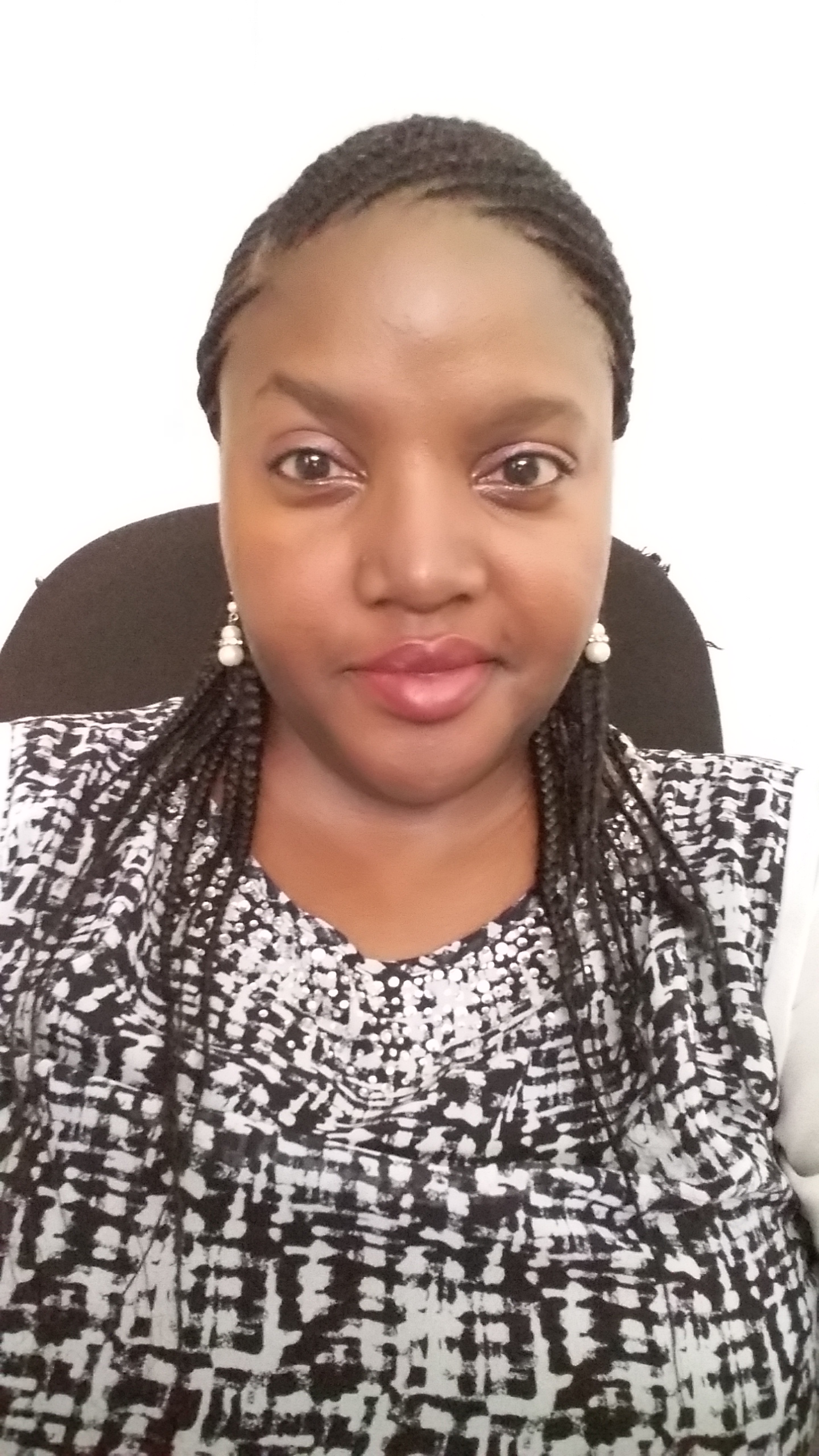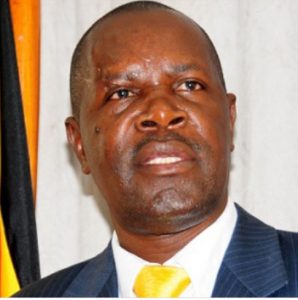SPEECH BY HIS EXCELLENCY YOWERI KAGUTA MUSEVENI, GENERAL (RTD) SSABALWANYI SSEMALUNGU, PRESIDENT OF THE REPUBLIC OF UGANDA AT THE NOMINATION DAY, 5TH JULY 2025
H.E. the Vice President, Rt. Hon Speaker, Chief Justice, The NRM Vice-Chairman, All the other leaders and the supporters of the NRM and all Ugandans.
Greetings. I want to thank the NRM Electoral Commission for nominating me. I hope the whole membership of the NRM and its structures will support my candidature as the Chairman of the NRM for the 2025-2031 term and also as flag-bearer for the NRM in the Presidential contest for the 2026-2031 term.
Why? It is because I stand here on behalf of the very NRM that started as a student movement in 1965. That nascent student movement emerged in a very fragmented landscape, where polarization followed tribes and religious denominations. That political fragmentation made governance impossible because no fragment could muster a majority in an election. The fragmentation also could not allow institutions to be built up. The victim institutions included the Army, the Judiciary, the Civil Service, etc.
With the two fragmentations — political and institutional — came the constitutional collapse in the form of the conflict between Mutesa and Obote in 1966 and the Idi Amin Coup of 1971. The constitutional order was destroyed within the first 10 years of Independence.
The next casualty was the small enclave economy (island economy) of the 3Cs and 3Ts. The 3Cs and 3Ts, I have told you repeatedly, were: coffee, cotton, and copper, and the 3Ts were: tobacco, tea, and tourism. Cotton had disappeared, copper had disappeared, tea had disappeared, and so had tourism. It is only coffee and tobacco that were still limping on. There were acute shortages (ebura) of all “essential items” as they were being called — meaning soap, salt, paraffin, textiles, sodas, beers, etc. Our alcohol drinkers were being rescued by “Primus beer” from Burundi and “Muniki” from Congo.
Therefore, by 1986, the great Country of Uganda had 3 mega traumas:
Political fragmentation caused by sectarianism leading to the collapse of the democratic constitutional order;
The collapse of the institutions of State, such as the Army;
The collapse of the economy.
Given all this and standing where we are today in the year of our Lord 2025, we can see that in the last 60 years, the NRM has been a participant and, for most of the time, a leader of the efforts to do the following in the interests of Uganda:
Liberation between 1965 and 1986;
Stabilization between 1986-2025;
Minimum Economic recovery by restoring the 3Cs and 3Ts, as well as eliminating ebura (shortages);
Expanding the narrow enclave economy;
Diversifying the economy by commercializing products that were previously thought to be for only subsistence, such as maize, milk, bananas, fruits, beef, poultry, eggs, sugar-cane, cassava, etc;
Value addition to these raw-materials;
Introducing, through the intensified and expanded education system, the knowledge economy of automobiles, vaccines, therapeutics, diagnostics, electrical gadgets, computer assembling, etc.
What does this mean? It means that the NRM, its cadres, and the masses that have supported them over the years have been participants in and, for most of the time, leaders of the efforts to liberate Uganda from sectarian fragmentation and political collapse; ensure its economic recovery; ensure the growth and expansion of its economy; ensure that the start of social-economic transformation of the society starts so that Uganda becomes a modern Country; and starts the struggle for the economic and political integration of Uganda into Africa so that the Wealth Creators of Africa have a reliable Market to absorb their products.
What have been the consequences of this? The consequences have been liberation, democratization, peace, and an economy that is now USD 61 billion by the foreign Exchange method and USD 172.2 billion by the PPP method. The economy has expanded 16 times since 1986 from USD 3.9 billion, according to Finance. This means that Uganda is now a lower middle-income Country with a GDP per capita of USD 1,263 for its population of 46 million People. This means that Uganda is no longer a least Developed Country (LDC). You can look at all the other statistics. They are good if not excellent in many cases. However, we can do much better, especially if we eliminate corruption.
What, then, is next and why am I coming forward to respond to the millions of Ugandans who have been ordering me with the slogan: “Tova ku main” — “Do not leave the main electricity line”?
It is for two reasons.
Reason number one, is to work with the NRM structures to clarify the importance of the 6 aspects that are very crucial in ensuring that Uganda and, maybe by example other parts of Africa, do not again miss the bus of history as happened in the past when Europe transformed and Africa stagnated and was enslaved. In my recent speeches, I have been answering the question that covers these aspects. The question is: “Where does prosperity come from and what are the factors that facilitate it?” I have been identifying 6 aspects:
Peace (no war and control of crime);
Development (entukuuka, enkulakulana, dongo-lobo, apol);
Wealth (obugaiga, obugagga, lonyo, abar, lonyi);
Jobs (emirimo, tic, assuam);
Services (obuhereza, obuwereza, aijanakin, such as health, education, spirituality, etc);
Markets for our products through regional integration.
This understanding helps us to, for instance, understand where the majority of the jobs in a developed Country come from. It is from the private sector — commercial farming, factories, services (hotels, transport, etc), and ICT (such as BPOs); not from the Government. Failure to understand this by the Country and the families leads to futile efforts and wasted time. In the short time of Uganda’s recovery, for instance, factories have created 1.2 million jobs compared to only 480,000 jobs of the whole Public Service. Agriculture 3,610,064 jobs; and Services 5,042,188 jobs.
The commercial farms, the factories, the service companies (hotels, transport companies, private schools, private hospitals, etc), or ICT companies, are wealth of Private People, but they also create jobs for other Ugandans. That nexus needs to be clear to all of us. Wealth creates jobs. Some of the wealth companies can be Government — such as National Water, Uganda Railways, Uganda Airlines, NEC, etc. They will have the same nexus — wealth and jobs, supported by peace and development (infrastructure).
The second reason, is to have leaders and a party that understands and is committed to the need for a qualitative leap from the status of the lower middle-income Country of USD 66 billion by the end of June 2026 to a high middle-income Country of USD 500 billion in the next few years. Some of our People talk of 2040. That is too far for me. I do not see why we cannot achieve it earlier if we are really aggressive in the pursuit of the objective and eliminate corruption.
Why do I say this? It is because much of our USD 61 billion economy today is raw-materials. Our coffee, as de-husked coffee beans, brings in USD 2.5 per kg. Yet, the one who roasts, grinds, and packs the coffee earns from USD 25 - 40 per kg. That is how all the coffee growing Countries of the World earn USD 25 billion out of the total value of USD 460 billion, and Germany, a non-coffee growing Country, earns USD 65 billion from coffee.
Since we have a wide spectrum of raw-materials of agriculture, raw-materials of minerals, fresh water resources, and forest products, we have a huge potential if we add value to all of them or most of them. By refining tin ore to 99.85% purity, we earn USD 33.66 per kg instead of USD 13.6 - 16.4 for the unprocessed tin ore.
When we purify gold to 99.90% purity instead of the previous ……%, tin to 99.85% purity instead of the previous 75% purity, copper to 99.99% purity instead of the previous 95%, we do not only earn more money from that commodity and create more jobs for our children, we also attract the jewellery makers to come to Uganda and make the jewellery there, the factories that need to use tin will come as will the factories that need to use pure copper such as the cables industries, the ones making transformers and the other electrical gadgets that use copper. This vertical and horizontal integration of the sectors will greatly expand the economy.
Add to all this, the knowledge economy of automobiles, vaccines, therapeutics, diagnostics, electronics, using our highly educated manpower, the transformation will be rapid. Therefore, the second reason for the NRM putting forward my name is to cause the qualitative leap of Uganda into a high upper middle-income Country in the next few years, preferably far ahead of 2040 — which is 15 years from now. Other Countries in Asia with less natural resources did it. We can do it.
We have already achieved the lower middle-income status by just recovery, diversification, and quantitative expansion with limited value addition. With maximum value addition to all the commercially viable raw-materials and the knowledge economy, we shall achieve the qualitative leap to high middle-income status and, eventually, a first World status.
God has enabled me to lead the NRM for the last 60 years through the phases I have outlined above. I believe God will see us through the qualitative leap. I am ready to make my contribution in the next five years phase, both as President and as Chairman of the NRM.
As we celebrate the victories of the NRM in the last 60 years, we should not forget to acknowledge the earlier struggles of the Bataka-bbu of the 1920s and IK Musaazi and his colleagues between the 1930s and the 1950s under the Farmers’ Movement and the UNC. Their efforts pushed Uganda towards Independence. It is a pity that the later sectarian politics undermined their efforts.
I cannot end this short address without congratulating the millions of the newly elected NRM structures’ leaders from the villages upwards. It is so pleasing to see so many, mainly young People, coming up as the new crop of the NRM leaders. It is now your chance to show that you can lead well.
In order to manage politics successfully as we, your predecessors, managed to do, you need to know that productive politics is about ideology (philosophy, ideology, and strategy) and not just about biology (age, gender, etc) and “jobology” (careerism). We have gone this far because of being guided by and working for the three historical missions and the four ideological principles. These are:
Prosperity for the People of Africa;
Strategic security for Africa;
Undugu (brotherhood) of the Africans;
And the four ideological principles:
Patriotism;
Pan-Africanism;
Socio-economic transformation;
Democracy.
We agree or disagree with you over these and not any other reason. If this is your compass, things are easy because they are guided by principles. That is how, for instance, we were able to work with People, even when we were not fully agreed with their overall position. That is how we worked with Binaisa in 1980, Yusufu Lule between 1981-1985 when he died, etc.
Even with Obote, we could have worked together or the DP in 1979-1980, if they had been as deliberate as we were, regarding the minimum possible programmes. With us, what is the starting point is not the who but the what. “What is to be done and why?”, as Lenin wrote. The interpersonal frictions we observe are not healthy. It should be the inter-ideological contestation that we should take care of.
I, again, congratulate the millions of the new NRM leaders, and we shall see how to support them affordably. My immediate advice to you is to be wealth creators if you are not one already, so that you do not look at leadership as a means of living — job (murimo). Political leadership is about okwerwanako (the People electing you to fight for their interests) and not about being a mupakasi (omukozi ow’ empeera — the hired shepherd that Jesus talked about in the Book of John 10:11-18).
If you are not yet a wealth creator already, you should see how additional Government programmes such as PDM and Emyooga can help you to start becoming one. Then, the party can see how to support some of the categories with operational costs.
If our generation had had a jobist mentality, Uganda would never have been rescued. All of us — Kategaya, Rwaheeru, Mwesigwa-Black, Mwesiga Martin, Ruzindana, Birihanze, Dennis Echou, Myself, etc, had well-paying Government jobs. On account of conviction, we left those jobs to fight for the salvation of Uganda. Where would Uganda be if we had not done that? What do the younger generations learn from that?
You do not have to fight with arms now. However, you should volunteer to serve your People by defending their legitimate interests against corruption, fraud, criminality, land evictions, etc. This is the role of principled political leadership.
Long live the sixty years of victories and progress.
Long live the efforts of the Ugandan freedom fighters.
Long live the qualitative leap to a USD 500 billion economy.
All glory to God our creator and sustainer.
Yoweri Kaguta Museveni, General (Rtd) Ssabalwanyi Ssamalungu
PRESIDENT OF THE REPUBLIC OF UGANDA
2025-07-05
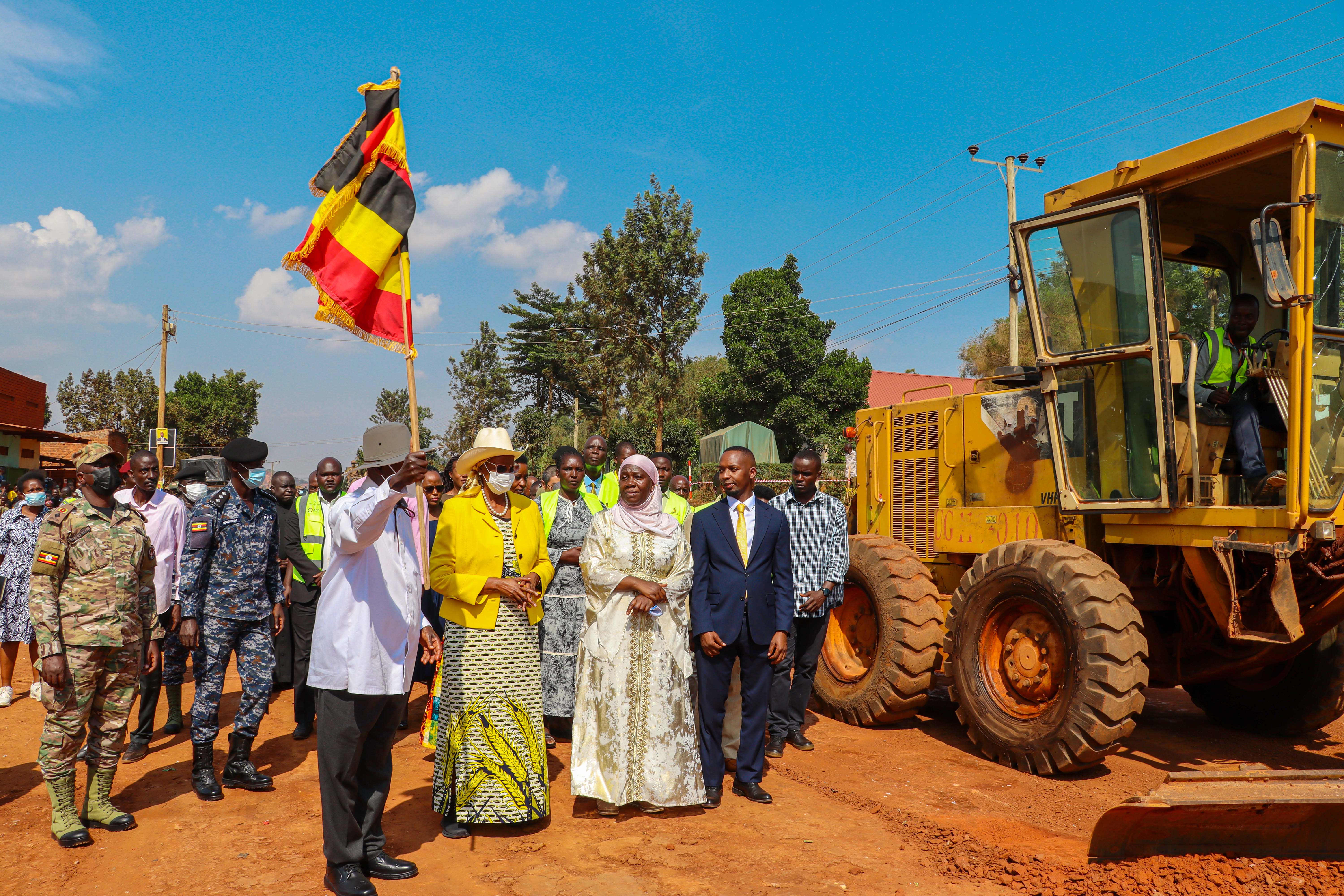

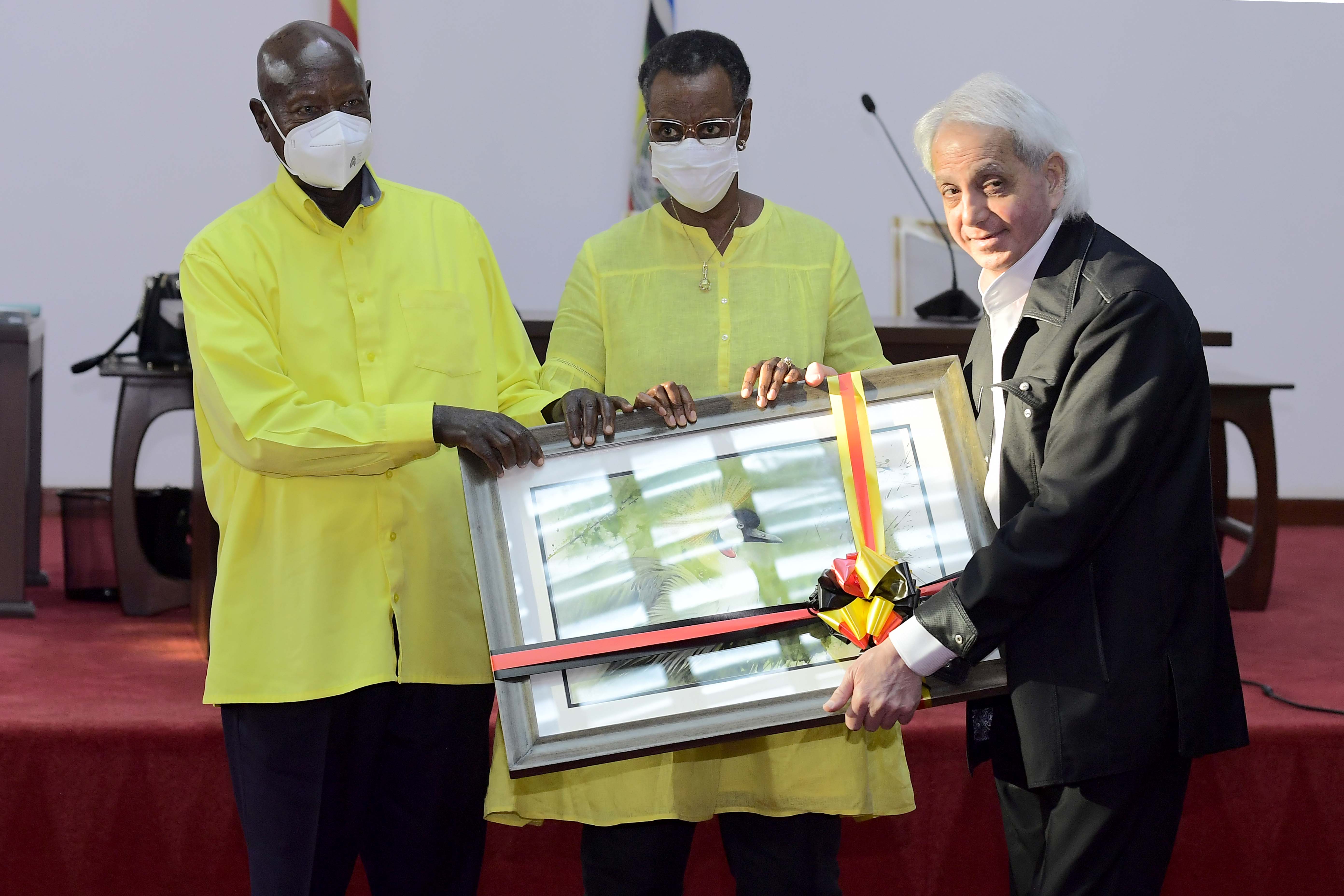


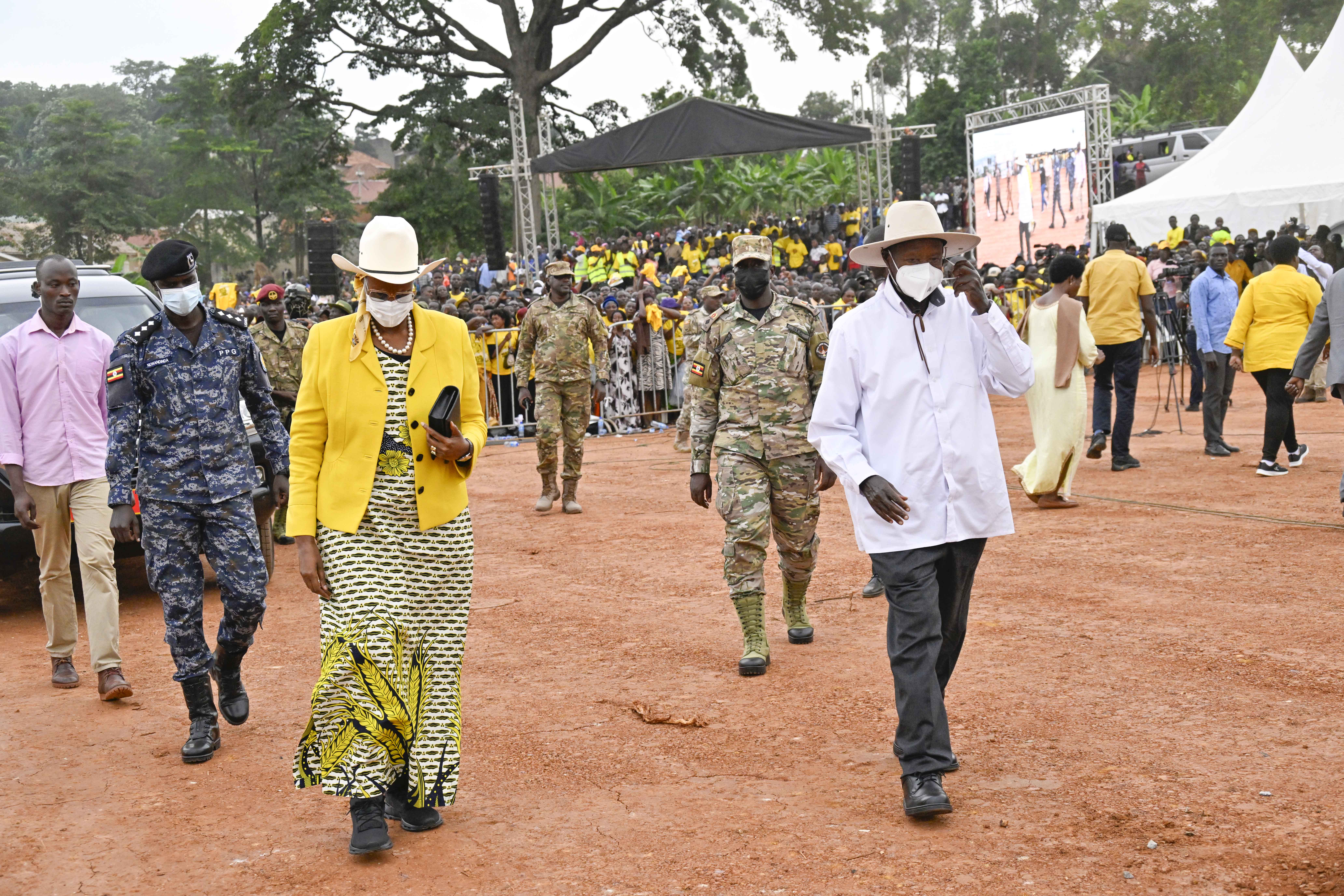
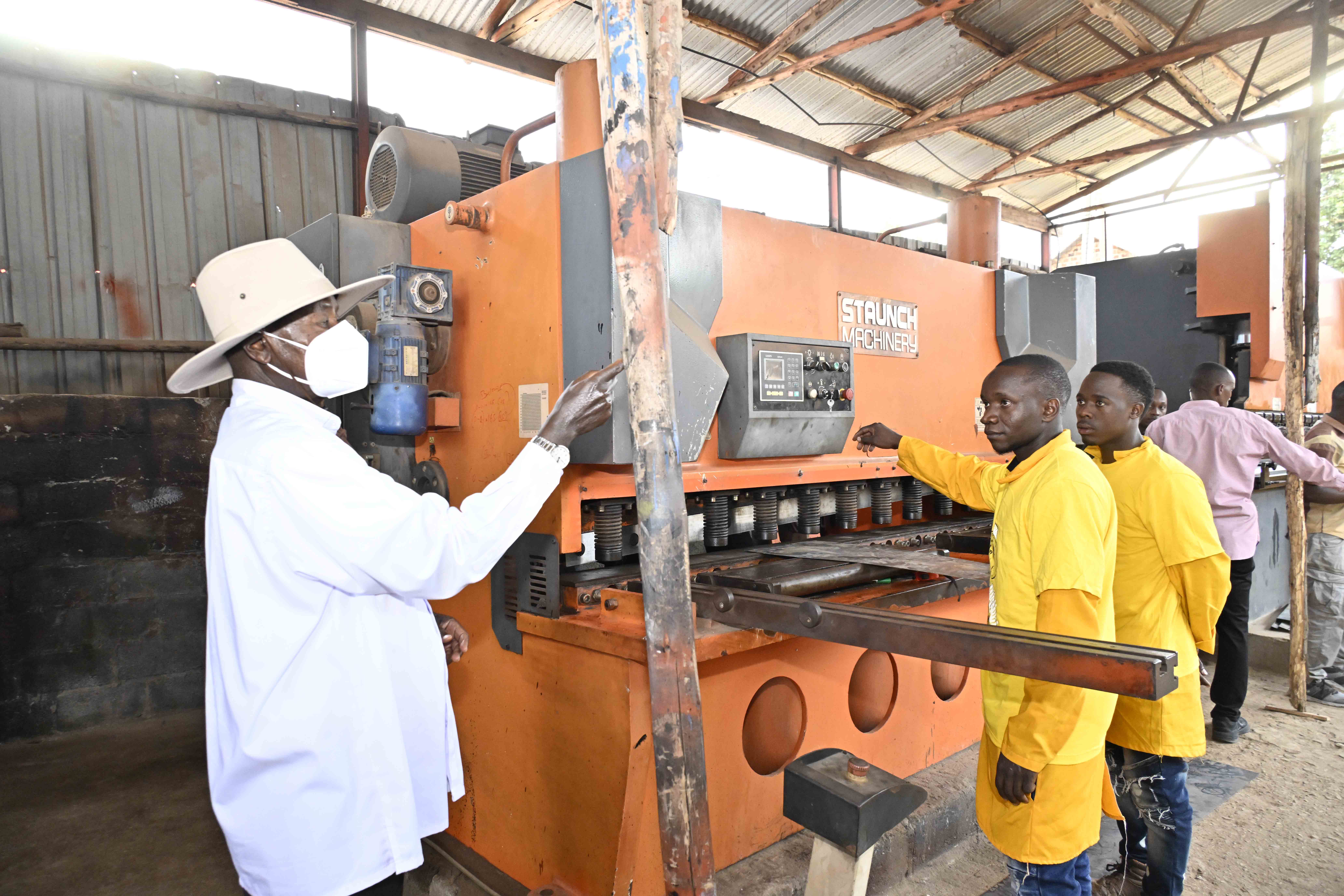
.jpg)
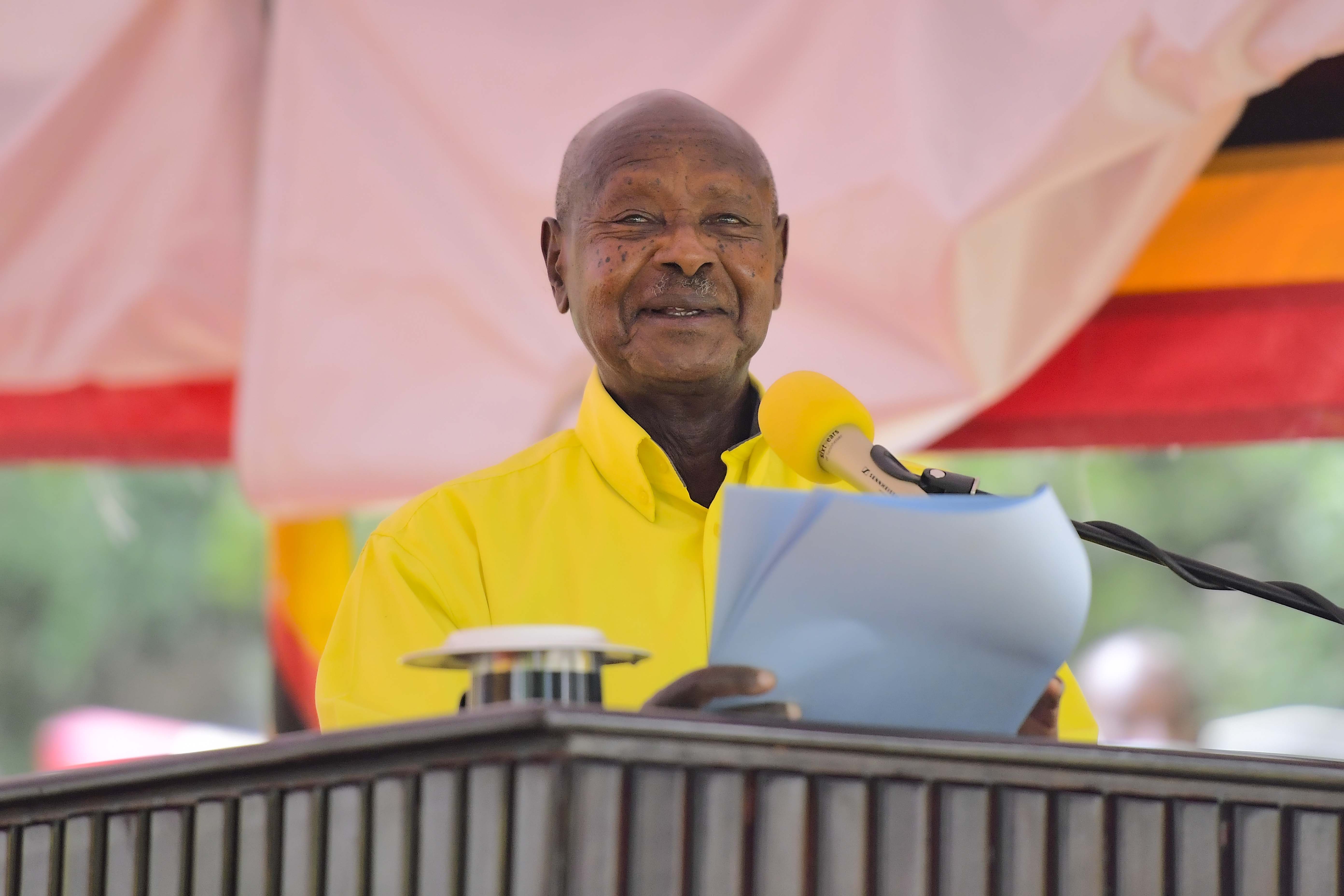
.jpg)
